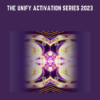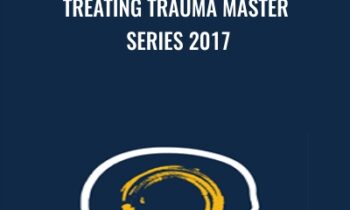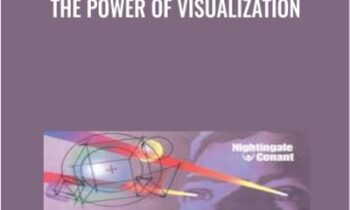$297.00 Original price was: $297.00.$87.00Current price is: $87.00.
Eight Weekly Training Modules to Explore:
Create a healing space through safety and presence
Foundational principles of relational neuroscience
How to engage our own inner healing—to better support others
 Purchase this course you will earn 87 Points worth of $8.70
Purchase this course you will earn 87 Points worth of $8.70Elevate your skills with the Trauma and the Embodied Brain – BONNIE BADENOCH course, available for just $297.00 Original price was: $297.00.$87.00Current price is: $87.00. on Utralist.com! Browse our curated selection of over 60,000 downloadable digital courses across diverse Hypnosis and NLP. Benefit from expert-led, self-paced instruction and save over 80%. Start learning smarter today!
Salepage link: At HERE. Archive: https://archive.is/wip/y8LYS
Buy now $87 $297, Trauma and the Embodied Brain – BONNIE BADENOCH Course.
Eight Weekly Training Modules to Explore:
- Create a healing space through safety and presence
- Foundational principles of relational neuroscience
- How to engage our own inner healing—to better support others
Welcome to Trauma and the Embodied Brain
Dear friend,
Can you recall a stressful situation that you endured alone?
Then, perhaps you later met with a friend who listened to you without judgment or agenda—creating a sense of support and safety. You likely felt your muscles relax, your heart slow down, your anxiety wane. If so, then you’ve felt the deeply relational nature of trauma and recovery.
If you’re a therapist who works with trauma survivors, you’re familiar with the many modalities available. In my own practice, I’ve discovered that one core dimension of healing is crucial—the deep, physiologically embodied relationship we hold with our clients.
Why does this matter? Research in the field of relational neuroscience offers this intriguing answer:
Trauma may be less about what happened to us and much more about who is there to support us—before, during, and after the overwhelming experience.
Ever since I started bringing this core insight into my own work years ago, profound changes have unfolded. And my mission now is to share their transformative potential with others.
That is why I’m delighted to invite you to my online course—Trauma and the Embodied Brain: A Heart-Based Training in Relational Neuroscience for Healing Trauma.
I created this program for therapists, caregivers, and others who want to support others in a deeper and more connected way—and to strengthen themselves while learning how.
I would love to share these eight weeks of learning with you—through both foundational knowledge and felt experiences. If you find this approach appealing, I do hope you’ll join us.
What’s Inside Your Curriculum
Trauma and the Embodied Brain:
Introduction to Relational Neuroscience
Session #1
Topics we will explore:
- Feeling our way into the core principles of interpersonal neurobiology
- Trusting the “inherent treatment plan” inside each person
- Nonjudgmental presence, receptivity, and responsiveness
- How we shape one another’s neural landscapes
Considering Trauma from the Perspective of Interpersonal Neurobiology
Session #2
Topics we will explore:
- Why trauma is a relational experience
- How to enable our nervous system to receive others
- Our two brain hemispheres as collaborators, not antagonists
- All emotions are truth-tellers and entry points, and more
Deepening Our Awareness of the Roots of Trauma
Session #3
Topics we will explore:
- Pathways where traumas are held, awaiting integration
- Types of trauma—visible and invisible, cumulative and sudden
- How trauma is shaped by developmental life stages
- Neural streams—their role in trauma and healing, and more
Our Embodied Brains in Development, Trauma, and Healing, Part I
Session #4
Topics we will explore:
- How trauma embeds in our bodies and how we adapt
- Working with the rupture-and-repair healing process
- Reflective practices for the skin, muscles, belly brain, and heart
- Why therapists need to be embodied ourselves, and more
Our Embodied Brains in Development, Trauma, and Healing, Part II
Session #5
Topics we will explore:
- The autonomic nervous system, polyvagal theory, and neuroception
- A practice for identifying ventral-to-dorsal shift
- Seeing the difference between explicit and implicit memory
- A practice for sensing rhythms of attachment, and more
Implicit Memory Change
Session #6
Topics we will explore:
- Implicit, explicit, and autobiographical memory
- “Touched vs. triggered”—benefits of awakening implicit memories
- How implicit memories are repaired and restored
- Positive implicit memories for support and healing
Pathways of Healing
Session #7
Topics we will explore:
- Cultivating stillness, presence, and nonjudgment
- How to lead and follow in relationship with clients
- Attachment repair through presence, contact, reflection, responsiveness and delight
- Creating a sacred space of connection and “holding suffering”
A Sacred Space Opens
Session #8
Topics we will explore:
- The sacred dimension of the therapist-client relationship
- Co-suffering and co-regulation as transformative experiences
- Trusting the “inherent treatment plan” within those in need
- A course review: core principles and practices
Cultivate continuous growth with the Trauma and the Embodied Brain – BONNIE BADENOCH course at Utralist.com! Unlock lifetime access to premium digital content, meticulously designed for both career advancement and personal enrichment.
- Lifetime Access: Enjoy limitless access to your purchased courses.
- Exceptional Value: Benefit from savings up to 80% on high-quality courses.
- Secure Transactions: Your payments are always safe and protected.
- Practical Application: Gain real-world skills applicable to your goals.
- Instant Accessibility: Begin your learning journey immediately after buying.
- Device Compatible: Access your courses seamlessly on any device.
Transform your potential with Utralist.com!
| Language | |
|---|---|
| Author |
Related products
= 24 Points
Hypnosis and NLP
Design and Installation of a Motivation Strategy – Elements of NLP – Module 01 – Chris Mulzer
= 59 Points
Hypnosis and NLP
= 235 Points
= 12 Points
Hypnosis and NLP
Disordered Eating Behaviors: Identify and Treat the Underlying Trauma – Lori Kucharski”
= 85 Points
Hypnosis and NLP
= 21 Points
Hypnosis and NLP
= 18 Points
Hypnosis and NLP
= 13 Points









